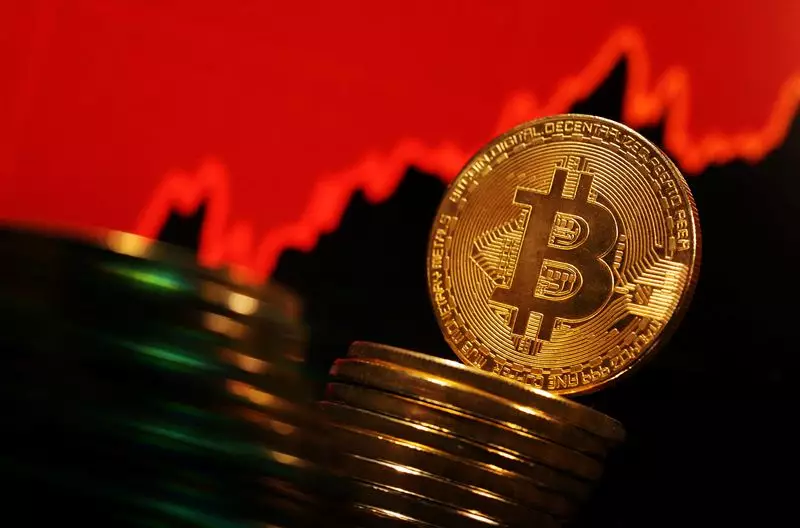Bitcoin’s price action has been anything but stable recently, particularly on Thursday where it hovered in a narrow trading range, reflecting investor uncertainty. The cryptocurrency was recently observed at approximately $98,124.6—a slight decrease of 0.1%—signaling the market’s reaction to a notable shift from the U.S. Federal Reserve. Following a two-day rally where Bitcoin rose nearly 5%, the atmosphere shifted as participants in the market displayed caution, particularly in light of hawkish tones from the Fed.
One pivotal moment was the Fed’s indication that it would adjust the pace of interest rate cuts—moving from prior expectations of four reductions in 2025 to just two. This change in outlook not only impacted Bitcoin but led to a broader reassessment of speculative assets and cryptocurrencies, which often see direct correlation with macroeconomic indicators. Just last week, Bitcoin fell below the psychological threshold of $100,000 for the first time since its meteoric rise, marking the end of a strong trend that had underpinned a seasonal rally linked to former President Trump’s election victory.
The initial surge that propelled Bitcoin to an all-time high of $108,244.9 is now showing signs of reversing. The swift correction was attributed to profit-taking among investors, who began to feel the bite of an advancing economic backdrop influenced by tighter monetary policies. The Federal Reserve’s recent decision to implement a modest 25 basis point rate cut brought quick scrutiny from market participants who are warily eyeing future moves.
The rising uncertainty around the trajectory of interest rates often leaves cryptocurrencies vulnerable, as they are generally viewed as riskier investments compared to traditional assets. This perception is further amplified after signals from the Fed suggest a more measured approach to future cuts, compelling many to diversify away from high-volatility instruments like Bitcoin.
In a parallel narrative, Russia’s adoption of cryptocurrency for international payments is notable amid increasing sanctions from the West. Russian Finance Minister Anton Siluanov highlighted legislative changes that have enabled companies to use Bitcoin and other cryptocurrencies to mitigate the impact of these sanctions. Local banks’ reluctance to engage with Russia-related transactions due to heightened scrutiny has led to an environment ripe for cryptocurrency adaptation.
With this development, Russia aims to bolster its presence in the global Bitcoin mining landscape, using its capabilities to overcome economic hurdles. The emergence of cryptocurrencies as a partial workaround for traditional banking challenges portrays a significant shift not just in Russia but globally.
While Bitcoin grapples with market sentiment, other cryptocurrencies have also experienced declines. Ethereum, often regarded as a benchmark alongside Bitcoin, fell by 1.3% to about $3,443.05, indicating that the bearish mood has permeated beyond the leading cryptocurrency. Similarly, XRP dropped 2% alongside other significant tokens like Solana and Polygon, which saw declines of 2.2% and 4.6% respectively.
This collective downturn reflects a market still reeling from the Fed’s recent statements. While Dogecoin, a meme-based cryptocurrency, also suffered a 2% loss, it underscores an overarching atmosphere of hesitation and volatility that Bitcoin, and by extension the crypto market, seems to be struggling with as it tries to navigate the complexities of global economic shifts.
The realm of cryptocurrency continues to evolve and adapt as external factors like central bank policy exert influence over investor behavior and market trends. The ongoing interplay between economic signals and cryptocurrency valuations remains a focal point for investors as they look to calibrate their strategies in a rapidly changing environment.

